Donor Support Helps Future Teachers Transition From College to Classroom

When Kailey Rea ’23 was preparing for her licensure exams, she knew she would have to take, and pay for, two separate tests before she could achieve her dream of becoming a middle school teacher.
Licensure exam fees are just one of many costs NC State College of Education students incur as they enter the classroom. From out-of-pocket expenses associated with student teaching, licensure testing, travel and others, the college to career transition can be a financial burden.
That’s where donor support can make a difference. Thanks to a gift from the PowerSchool Education Fund, Rea, and other students like her, were able to receive vouchers that covered the costs of their exams.
“Receiving financial assistance to cover my teacher licensure exams was very beneficial to me,” said Rea, who earned her bachelor’s degree in mathematics education and is now a sixth-grade science teacher at Dillard Drive Magnet Middle School. “I was planning lessons every day and preparing for the edTPA. Knowing there was one less thing I needed to worry about to fulfill my dream of becoming a teacher, I could gain the full experience from student teaching and build relationships with my students.”
Student teaching is another instance where the NC State College of Education relies on donor support to ensure future educators have a successful transition from college to career. When students complete their student teaching, they often take advantage of the opportunity to bring innovative learning experiences into the classroom.
However, student teaching does not come with a stipend or paycheck that covers out-of-pocket expenses. That’s why the College of Education created the donor-funded student teacher mini-grant program, which allows students to apply for up to $200 to purchase materials and supplies they can use to make an immediate impact in the classroom and to set the tone for the rest of their teaching careers.
“I genuinely wanted to continue learning about new ways to become the most effective educator that I can be,” said Sophie Teres, who earned her bachelor’s degree in elementary education and is now a third-grade teacher at Brooks Magnet Elementary School. “I reflect on all of the insight and advice provided to me in order to continue improving my practices and prepare myself for my own classroom. I’m excited to continue doing this throughout my entire career as an educator as well.”
Thanks to donor support, NC State College of Education students like Rea and Teres are better positioned, both financially and experientially, to be the teachers they have always wanted to be.
“I chose education because I realize the impact I can have as an educator and the impact my students can have on me,” Rea said. “I have also learned so much from the young people I have interacted with. I see mathematics, science, friendship, fairness and many other things in a totally different light thanks to them. I am excited to experience that every single day.”
Here are just a few of the mini-grants College of Education students, including Teres and Rea, have used to make a difference in the lives of their students:
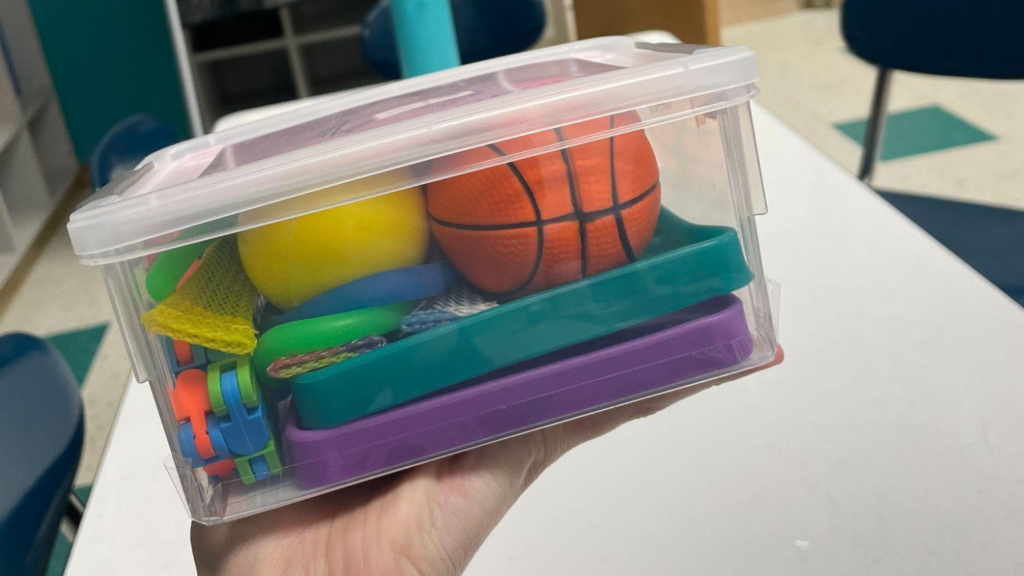
Calm-Down Kits
At A.B. Combs Magnet Elementary School, elementary education majors Gabby Breit ’23, Mary Horton ’23, Holly Small ’23, Jordan Stanford ’23, Elizabeth Stavrakakis ’23, Katie Frejie ’23, Addison Hughes ’23 and Sophie Teres ’23 pooled $1,000 in mini-grants together to make 60 calm-down kits, which were distributed to every classroom in the school. Each calm-down kit contained stress balls, pop-its, sensory ropes, wacky-tracks fidgets, marble fidgets and three deep-breathing cards.
“We are extremely grateful for this grant money to allow us to make this positive impact on the students at our school, even after our student teaching is completed,” one of the students said.
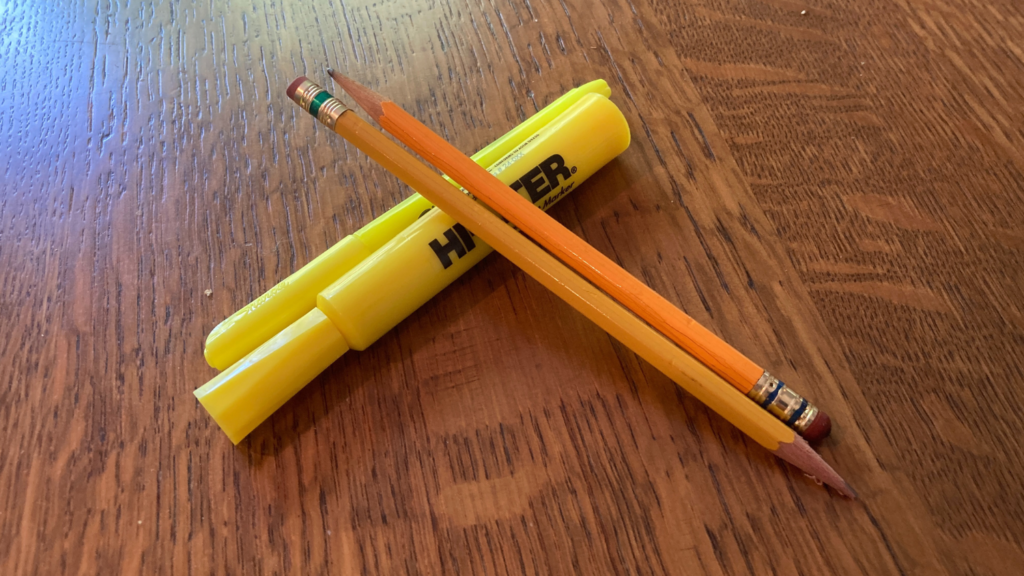
Classroom Necessities
When elementary education major Brenda Rios ’23 noticed some of her students at Lincoln Heights Elementary School lacked the materials needed to underline or highlight important information, she applied for and used a mini-grant to order highlighters, pencils and erasers for the fourth-grade classroom.
“[Donors] helped students get school necessities that many cannot get from home,” Rios said. “This mini-grant went a long way. My students and I were grateful for these resources and classroom supplies.”
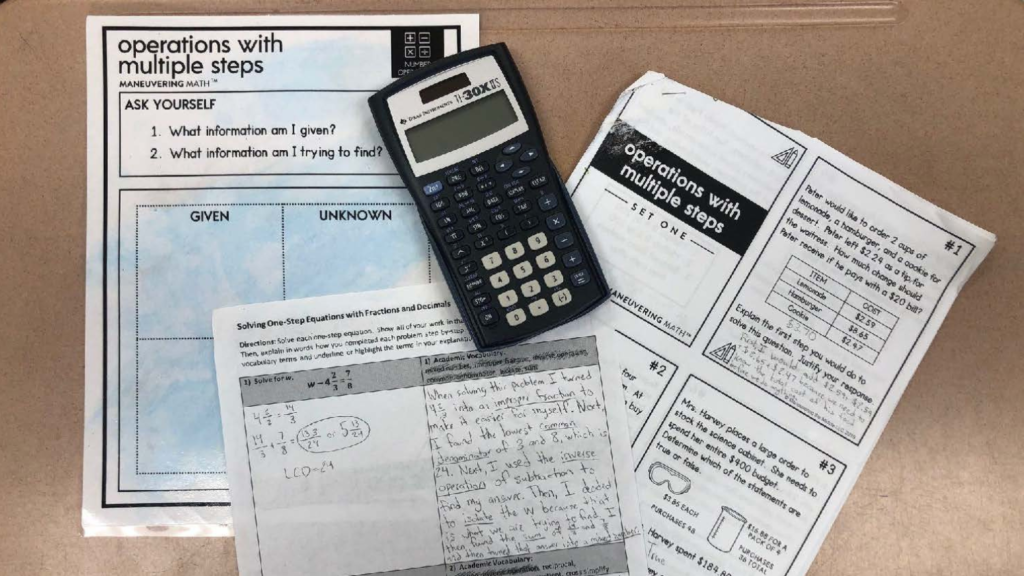
Calculators for SOAR Students
At Clayton Middle School, Adam Rosenberg ’23MAT taught in a SOAR class composed of students on the lower boundary of meeting average math standards. In the class, students used calculators to better describe the actions and steps needed to solve problems and verbalize solutions to equations. There were not enough calculators to go around, so Rosenberg applied for a mini-grant that allowed him to purchase new ones.
“Students were elated when they heard they could use calculators to assist them in this project and not have to share one calculator amongst a group,” Rosenberg said. “The calculators that we purchased are used daily by students eager to learn. I was overjoyed to receive this mini-grant.”
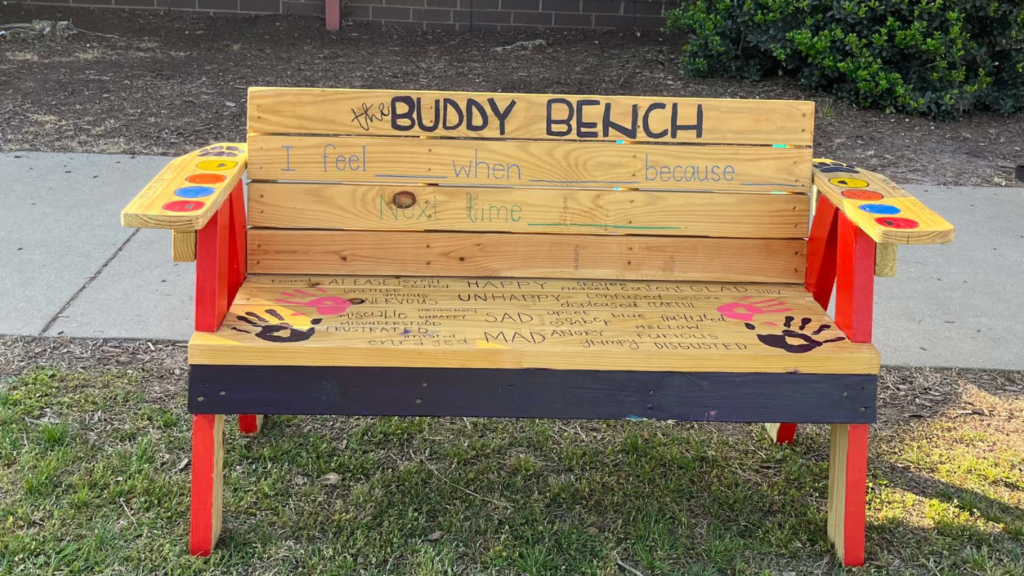
Buddy Benches
At Polenta Elementary School, elementary education majors Johnna Jordan ’23, Madison Neal ’23 and Alex Simon ’23 realized only one of the school’s three playgrounds had a buddy bench, a safe place for students to go if they are upset or sad at recess. With money from mini-grants, they brought supplies for and constructed two additional buddy benches.
“Knowing we would not have to spend money out of pocket helped us really think about what we wanted to do and not just go with the cheapest option,” Simon said. “This grant was extremely helpful for us full-time student teachers who are struggling enough to keep up and afford our own personal needs. I am beyond grateful for this grant helping us complete our benches. These benches are sustainable and will last a long time outside.”
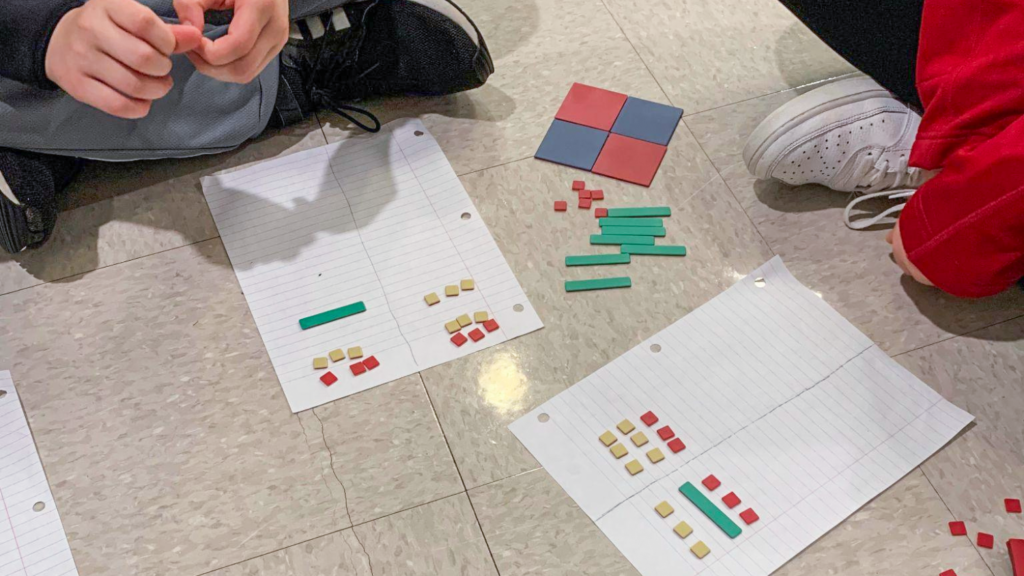
Algebra Tiles
When mathematics education major Kailey Rea ’23 noticed her students at Reedy Creek Magnet Middle School were struggling to understand the concept of a variable in the expressions and equations unit, she applied for a mini-grant that allowed her to purchase algebra tiles that modeled solving equations. With the tiles, students could put the same number of red squares as yellow squares on each side of the equation and better visualize the concept.
“Students learn more when they can see, touch and move the mathematics they are learning,” Rea said. “I will now have this resource throughout my teaching career to help students understand fundamental math concepts in an engaging way. I have appreciated the opportunity to implement this in my student teaching classroom.”
- Categories:


